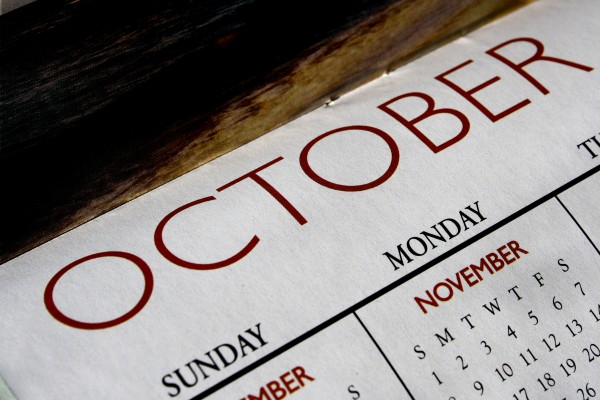
Jewish Calendar Talk

http://www.photos-public-domain.com
My high-school educated mother came of age in the days when “gentleman’s agreements” limited Jews’ access to higher education, housing, and the professions. One of her formative experiences was an interview at what we would now call a major telecommunications corporation. A clerical position with a decent salary, benefits, even vacation, it was a “good job” for a woman with limited education. However, there was one catch: she had to work on Rosh Hashanah and Yom Kippur. She didn’t have a great deal of formal education but she was no dummy–she knew that this was a less than subtle way to keep Jews out of that particular workplace. Having been raised in an Orthodox household, she also knew that the choice offered was no choice at all.
We rightfully celebrate that Jews now have full access to higher education, housing, and the professions. But I wonder if we fully appreciate how, at the holiest time of the Jewish year, Jews are still routinely, subtly and powerfully required to make choices between their Jewishness and their wholesale belonging in various professional, communal, and organizational worlds. Look at all sorts of calendars (and our rationalizations for them) and you have an important Jewish story in the 21st Century.
One place to start might be an international body, the United Nations. For some odd reason, the Jewish High Holidays are not on their list of official holidays. Of course, Christmas and Good Friday grace that list; Eid al-Fitr and Eid al-Adha were happily and rightfully added in 1998.
3 comments on “Jewish Calendar Talk”
Comments are closed.




Sorry to say that this does not surprise me. My daughter lives in a town in MA that has a small but not insignificant Jewish population – and an elementary school show was scheduled for erev Yom Kippur this year (2014/5775)! My daughter let the principal know, as soon as she saw the calendar, and received an apology and the promise that this wouldn’t happen again. Remains to be seen…
My granddaughter, in 2nd grade, auditioned and was given a part in the chorus; she & other Jewish kids in the chorus performed in the school day performance but had to skip being there at night. Kol Nidre! REALLY? Would they have a show on Christmas Day or Easter Sunday?
This really hit home with me. I recall all too well working my way through business school at a law firm in Washington, D.C. in the mid-’80s. Yom Kippur was on Saturday that year. When the office manager approached me about coming in that day and doing overtime, I politely declined, telling her it was a holiday. Her response, “Wasn’t last week the holiday?,” in a tone that told me she thought I was making it all up as an excuse to avoid putting in the hours. My response, “Yes, last week was a holiday, and if I didn’t come in then, I certainly can’t come in tomorrow because it’s an even holier day.” I’d never been such a minority before (or since). There was only one other Jew at this firm, and I learned that day not to assume people knew anything about my religion just because you were in a major American city. Conversely, when an orthodox attorney came one day for an all-day meeting, the office manager came running to me, expecting me to be an expert in all things kosher, which I’m not.
I live in a city with a small Jewish population (less than 1% of our overall metropolitan population). Nonetheless, we have both a Conservative and an Orthodox synagogue, and Chabad, of course. There is noticeable Jewish participation in academia (we have 5 universities), medicine, law, and business. We are not invisible in the community. In the fall, the numbers in our community soar, as Jewish students flock to our universities from other provinces in Canada and some US states. Here, too, it is not unusual that events I might like to attend are scheduled with utter disregard for the Jewish calendar. When challenged, people most often say, “Well, then we’d have to pay attention to EVERYONE’S calendar, and nothing would get done!” They think they’re being reasonable. But the fact is, I have to live my life on the Gregorian calendar, a Christian calendar, and I manage to make those accommodations. While it’s very true that we have many days of religious observation, it irks me no end that anybody should need to be told this in the first place, and would refuse to correct it in the second: if you’re scheduling events, consider Yom Kippur! Don’t schedule it then! Is it any more necessary to schedule an event on Rosh Hashannah or Passover than it would be to schedule the same event on Christmas or Easter? If I have to choose between my observation and your event, I’m afraid I’m gonna give your event a miss. And YOU might actually miss MY participation.